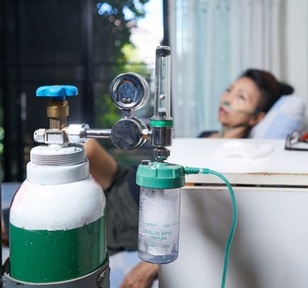Home care workers get guidance on how to care for recovering COVID-19 patients
Home care workers are being given new guidance on how to safely care for people who have left hospital and are recovering from COVID-19 at home.

The guidance developed for the Department of Health and Social Care (DHSC) by the Social Care Institute for Excellence (SCIE), explains what home care workers can expect when it comes to the health condition of people recovering from COVID-19, such as longer-term damage to the heart and lungs, difficulty swallowing, muscle weakness and fatigue.
Skin damage, confusion and mental health problems can also affect a recovering COVID-19 patient’s ability to resume day-to-day activities, the guidance states.
The new guidance also explains what home care workers should do if they notice changes in the mental health of their clients.
While it emphasises that most people will make a full recovery from COVID-19 at home, the disease can make it harder for someone’s lungs to get enough oxygen into the blood. If not treated this can cause long term damage and long term breathing problems.
Some people do not have any symptoms to warn them that their oxygen level is low but a device such as a pulse oximeter can monitor how much oxygen their body is getting.
Home care workers are advised about the importance of closely monitoring changes in a client’s health condition, monitoring oxygen levels and how oxygen should be stored in clients’ homes.
As oxygen can pose a fire hazard, home care providers must ensure personalised care and support plans manage the risk of explosions and fire and explain who will be responsible for managing the oxygen.
Infection control measures and how to effectively involve clients’ families and loved ones are included in the guidance. It states involving clients’ loved ones is ‘central’ to providing care and support to individuals.
Home care workers are also warned they ’should only take on tasks which have been allocated to them and which they understand and can perform safely. It is important that they also understand when to escalate concerns to others, including their supervisor or manager, and how to do that’.
Some home care clients may need to have an exercise routine set by a lung rehabilitation specialist to help their lungs recover. The specialist may provide advice on how to help the person to do these exercises. This may be included in the person’s care and support plan and care workers may be provided with training on how to support someone to carry out these exercises.
Other individuals may develop tiny blood clots in their lungs. This can reduce the functioning of the lungs. In this case, people may be treated with medication which thins the blood. This can lead to them bruising easily. If a care worker notices any unusual or repeated bleeding, the guidance advises they should immediately seek medical attention by contacting the person’s GP, calling NHS 111 or an ambulance.
Latest News
 29-Jul-24
Dementia Bus gives carehome.co.uk staff insight into life with dementia
29-Jul-24
Dementia Bus gives carehome.co.uk staff insight into life with dementia
 27-Jul-23
UK's top home care agencies in 2023 revealed
27-Jul-23
UK's top home care agencies in 2023 revealed
 30-Nov-22
A quarter of older people keep their falls secret from family
30-Nov-22
A quarter of older people keep their falls secret from family
 29-Nov-22
'Covid-19 has not gone away' say terminally ill
29-Nov-22
'Covid-19 has not gone away' say terminally ill
 28-Nov-22
IT consultant who received poor care opens 'compassionate' home care business
28-Nov-22
IT consultant who received poor care opens 'compassionate' home care business